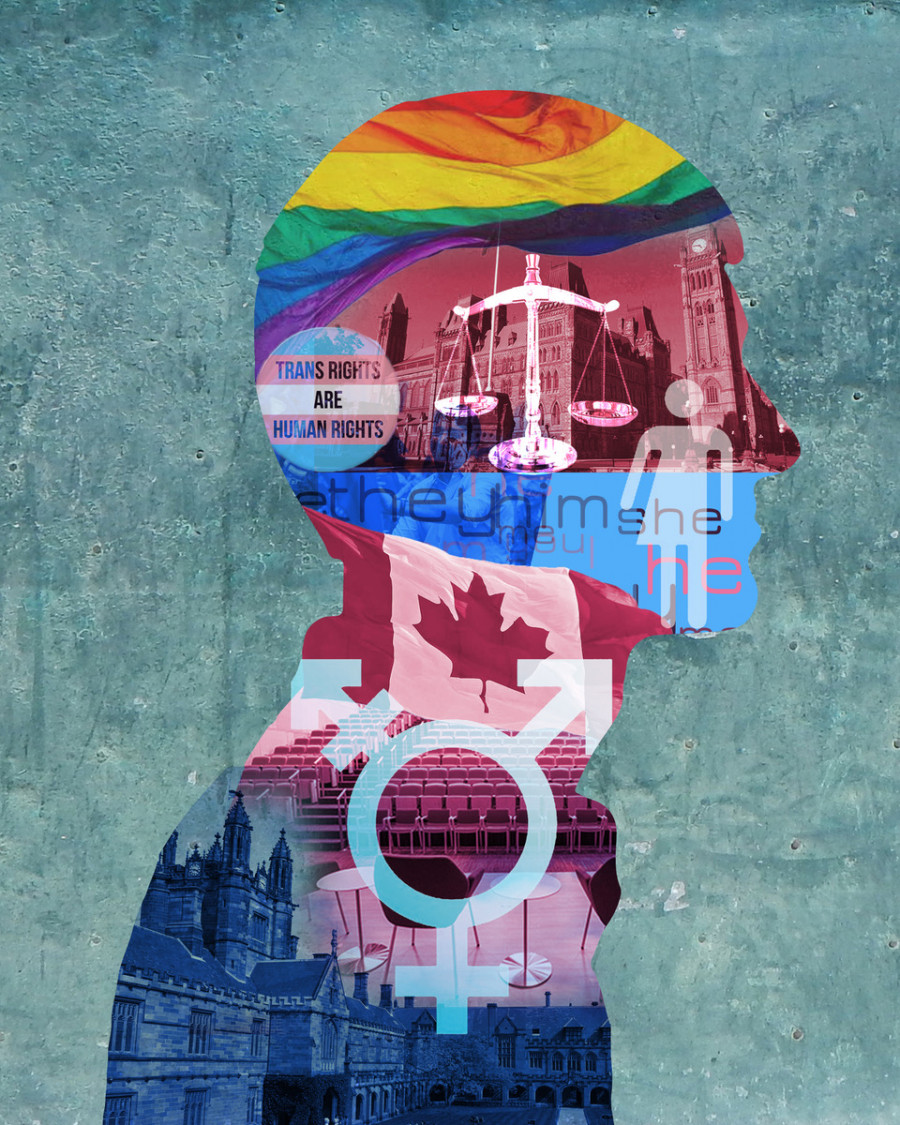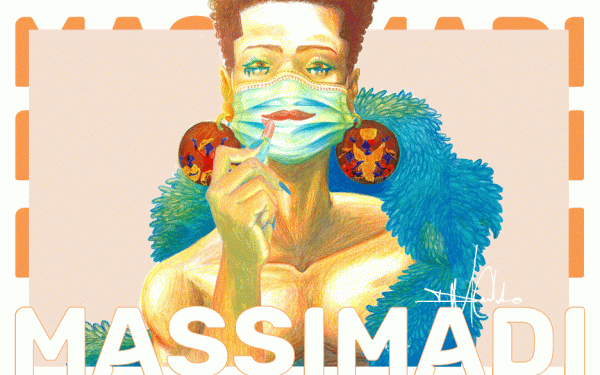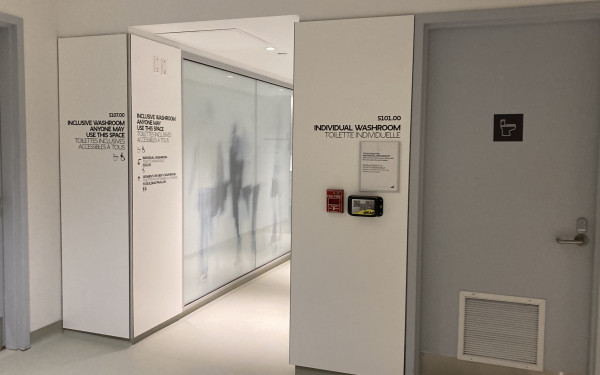Politicizing Trans Identity in the Classroom
What We Learned From the Lindsay Shepherd Controversy
Lindsay Shepherd, a teaching assistant for a first-year communications studies class at Wilfred Laurier University, made major headlines recently after she showed a video in her tutorial class of Jordan Peterson voicing his critiques about pronouns.
Peterson is the infamous University of Toronto professor who preached transphobic rhetoric and refused to call students by their genderless pronouns, and has since continued to promote his dog-whistle politics in various outlets.
“I’m not willing to mouth words that I think have been created for ideological purposes,” Peterson said of alternative gender pronouns:
After the diversity and equity office found out about Shepherd’s tutorial, some faculty members and staff at Laurier held a meeting with Shepherd—which Shepherd recorded—in which she claimed that she showed the video neutrally, then afterwards let students debate amongst themselves whether transgender people should be called by their correct pronouns.
The university professors told her that showing Peterson’s views in a neutral light was problematic because they don’t have any “academic credibility.” They compared it to a hypothetical class about environmentalism, and explained how absurd it would be if a TA in that class presented opinions for and against climate change as if they were both completely valid beliefs, and then let the students make up their own minds.
Shepherd was audibly upset throughout the discussion, and has since implied that she felt disrespected, silenced, and shamed by the university. Hopefully this will enable her to understand how the groups that are actually affected by the arguments that she gave voice to feel. Instead, those affected do not seem to be on her mind, and they don’t seem to be present at all in this conversation.
In presenting Peterson’s transphobic views in a “neutral” way, that hateful ideology gets validated and legitimized. Shepherd’s approach in the tutorial class has troubling parallels to Donald Trump’s “there was violence on both sides” response to the Charlottesville riots in August. Treating Peterson’s transphobia as logic wrongly equates tolerance and intolerance as does Trump’s comment. It calls into question the validity of trans and non-binary identity, and no student should have to sit in a class and argue about whether or not they should be accommodated by society.
Shepherd’s claim that students need to think about the issues that they are going to encounter in the real world is obviously true. But unpacking these issues is a delicate process. Students should be developing the tools to think about Peterson’s transphobic rhetoric alongside Richard Spencer’s neo-nazism, climate change deniers, anti-feminists, and the whole list of oppressive views that exist in this messed-up world. Presenting those views in an unbiased way does not teach them those tools.
The classroom is in theory a place of truth. Students are extremely vulnerable and impressionable in that environment, and that is something that the people in positions of authority and responsibility—Shepherd in this case—need to be extremely conscious about. A professor’s word is the word of God for many students, and if they are treating transphobia as rational and logical and equitable with arguments for trans rights, then the students will likely think of them that way too.
Shepherd’s response to the issue was unproductive, and gave voice and validation to an ideology in a place where those things shouldn’t be granted. The whole ordeal revealed an inherent unwillingness among the dominant class in Canada to accommodate minority classes, or even to empathise or think rationally about issues that are outside of their personal experiences.
Take a moment to feel empathy for transgender and non-binary individuals. Their entire existence as human beings is a political debate.They have to fight for their rights to be treated with humanity in all facets of the society that they inhabit on a daily basis. The classroom should be a place where they are surrounded by rational people who don’t call into question the validity of their identity. They shouldn’t have to pay thousands of dollars to attend classes where they are forced to defend their most basic human rights. University should be dedicated to criticizing the systems of oppression that they exist in, not perpetuating them. Taking Peterson’s intolerant arguments seriously does just that.
Major Canadian news outlets like CBC and CTV invoked the same free speech argument that powerful, privileged people love to hide behind. In an article for Vice News, Abigail Curlew made the point that everyone else seems to be missing: “The “freedom of speech” of those who hold bigoted views silence the freedom of speech of those they target.” The “free speech” that Shepherd and Peterson and most major news companies are referring to applies only to the dominant members of society and is at the cost of the freedom of minority groups.
The Toronto Star, in an article where they also misused the term “transsexual” when referring to transgender folks, attempted to divert attention away from the problem of white privilege and transphobia by claiming, “grammar, particularly the use of pronouns, has become deeply politicized.” From free speech to grammar, it seems that most people are willing to talk about anything except transphobia in the context of this issue. But discussing the use of alternative personal pronouns in any context other than transphobia is nothing but a smoke screen—a thin veil hiding systemic intolerance.
This argument wasn’t about free speech when Peterson made it, and it’s not about free speech now. Peterson advocated against Bill C-16, that looked to update the Canadian government’s Criminal Code and the Canadian Human Rights Act to add gender identity or expression to a list of “prohibited grounds of discrimination,” and to outlaw inciting genocide towards trans individuals through hate speech.
Bill C-16 simply extended the rights of other groups in Canada—classes of race, religion, age, mental and physical ability—to gendered groups. It is only invoked in cases of extreme hate speech, and so has never been used in cases of misused pronouns, as Peterson feared. An article in Canadaland brought a voice of reason to the controversy when they wrote, “In the same way that people aren’t routinely locked up for using racial slurs, it’s also extremely unlikely they’d be jailed for referring to a transgender person who prefers to be called ‘they’ as ‘he’ or ‘she.’” The argument is about bringing gender discrimination under the same laws as other forms of discrimination.
That is not up for debate, at least not in our educational institutions. This is not a friendly discussion between two logical sides, it is a fight between tolerance and intolerance.
Giving a platform to Peterson’s intolerance is unproductive and insensitive towards people who are impacted by the transphobia that he preaches. Peterson’s arguments should be taught in a context that condemns them and with the purpose of showing students exactly why they’re offensive, so that they can go on to dismantle systemic intolerance in the future.
A previous iteration of this article stated that complaints had been made by students against Shepard. In fact, no formal complaints were made. The Link regrets the error.






_600_375_90_s_c1.jpg)
